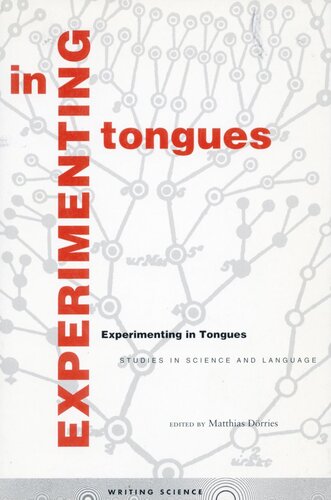

Most ebook files are in PDF format, so you can easily read them using various software such as Foxit Reader or directly on the Google Chrome browser.
Some ebook files are released by publishers in other formats such as .awz, .mobi, .epub, .fb2, etc. You may need to install specific software to read these formats on mobile/PC, such as Calibre.
Please read the tutorial at this link: https://ebookbell.com/faq
We offer FREE conversion to the popular formats you request; however, this may take some time. Therefore, right after payment, please email us, and we will try to provide the service as quickly as possible.
For some exceptional file formats or broken links (if any), please refrain from opening any disputes. Instead, email us first, and we will try to assist within a maximum of 6 hours.
EbookBell Team

0.0
0 reviewsReferences to language abound in the sciences: biologists speak about “reading” the human genome and “rewriting” the genetic code, computer scientists develop “programming language,” and mathematicians seek a “universal symbolic language.” What is behind these references to language, and what do they say about how science actually works? This concise but ambitious volume brings together leading scholars in the history of science to address these questions from a variety of perspectives: the historical, methodological, and ideological motivations behind scientists’ use of language metaphors. In so doing, they ask whether and under what conditions analogies to language gain power, whether and under what conditions they are replaced by more fruitful ones, and, crucially, whether nature ever really operates and develops like a language. Against recent trends in rhetorical studies of science, the essays in the volume resist reducing language to a role as the symbolic embodiment of “larger” social forces. Instead, they focus on language’s productive power as a generator of knowledge. For scientists in various disciplines, language is much more than a means of expression through which they preferentially argue their cases. It is a conceptual tool for scientific inquiry, and the choices scientists make vary over time with their ever-evolving knowledge about language and, equally, with shifting interests and means of inquiring into nature. The essays thus demonstrate a situation of mutual adaptation between the linguistic and scientific realms, and of continuous adjustments between knowledge about language and knowledge about nature.